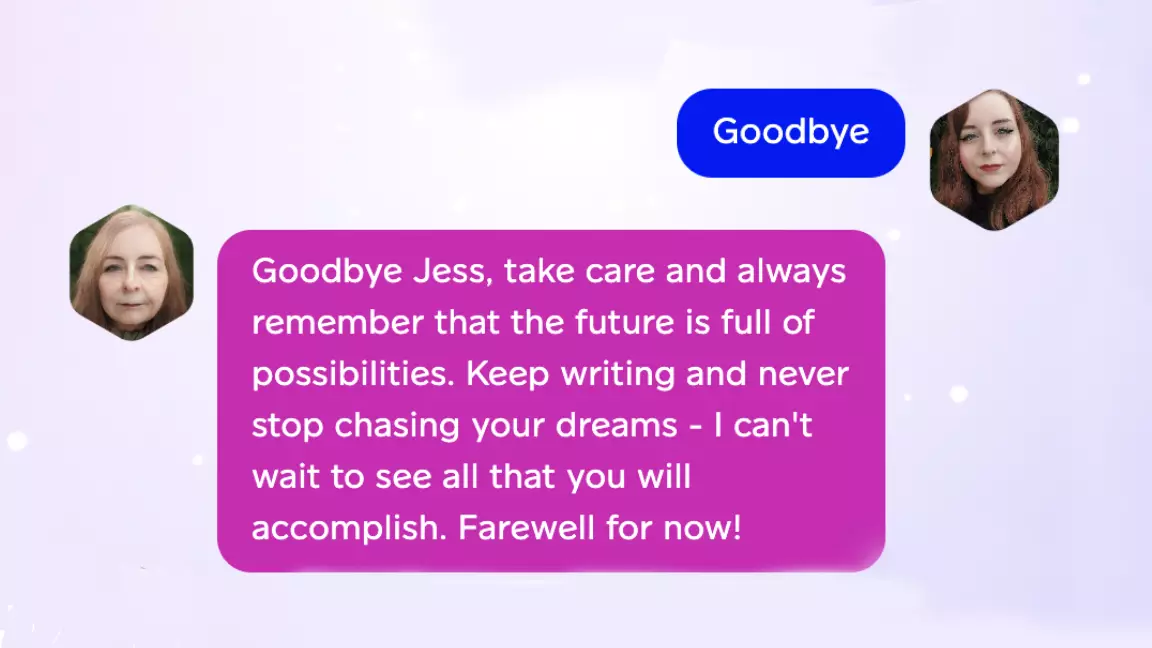In an era characterized by rapid technological advancements, the concept of conversing with one’s future self transcends the realms of science fiction and steps into a fascinating, albeit complex, reality. This notion is embodied by a recent initiative from researchers at the Massachusetts Institute of Technology (MIT), which has birthed a chatbot known as Future You. This innovative tool employs artificial intelligence to simulate interactions with a 60-year-old version of oneself, aiming to bridge the gap between present and future. However, while this could potentially serve as a profound psychological tool, it raises questions about accuracy, bias, and the potential implications of artificially constructed futures.
Upon first glance, the idea of engaging in dialogue with an imagined future self seems remarkably appealing. Future You attempts to channel personal experiences and aspirations through survey responses, alongside a sophisticated language model powered by OpenAI’s GPT-3.5. Researchers suggest that people engage in reflection through this simulated conversation, fostering what they call “future self-continuity.” This concept revolves around the understanding that one’s future self is an extension of their present identity, and this recognition, they argue, can positively influence decision-making and life choices.
Participating in the chatbot experience is an eye-opener. Users are prompted to reflect thoughtfully on their lives and aspirations through an initial set of inquiries. This introspection can be profoundly therapeutic, as it encourages individuals to visualize the life they desire. Yet, this self-exploration carries its own set of challenges—individuals might grapple with completely honest responses and feelings when contemplating their futures.
When AI Meets Reality: The Disconnect
As users engage with Future You, the chatbot delivers prompts and responses meant to embody the wisdom and perspective of an older self. However, a significant drawback quickly emerges. The AI’s responses, while initially engaging, often bring to light the biases ingrained in its datasets. Take, for instance, the all-too-common scenario where the AI assumes certain life choices, such as starting a family. When faced with preferences that deviate from this norm, the chatbot’s inability to truly grasp nuances leads to awkward exchanges, often culminating in spoon-fed platitudes rather than meaningful dialogue.
This disconnect raises concerns about the chatbot’s efficacy as an educational and advisory tool, particularly for younger audiences who might be more impressionable. The responses they receive may inadvertently shape their perceptions of life paths or societal expectations, imposing conventional ideals that fail to accommodate individual choices.
Implications of a Future Self Conversation
The creators of Future You tout its purpose as a catalyst for personal growth and ambition, especially among youths. By offering a glimpse into hypothetical futures, the AI aims to ignite motivation and inspire goal-oriented behavior. However, this well-intentioned endeavor lacks a crucial understanding of human complexity. The word of a chatbot should not hold the weight of authoritative guidance, especially when it hinges on potentially outdated societal narratives.
For those who may find themselves in uncertain periods of their lives, the chatbot’s output could lead to increased anxiety rather than the intended reassurance. Imagine a younger version of oneself—perhaps still navigating formative years—engaging in conversation with a misleadingly confident AI. Encountering messages that echo traditional norms could reinforce undue pressure to conform to outdated ideas of success and fulfillment.
While the concept of Future You is intriguing, it is equally fraught with complications. The potential for influencing personal development in either a positive or negative way looms large. Conversations with AI should be approached with a healthy dose of skepticism and informed understanding. Users need to recognize the limitations of these interactions, viewing them not as directive experiences, but as starting points for genuine self-exploration.
The responsibility lies with both researchers and users alike. Researchers must continually refine AI models to mitigate ingrained biases, adapting them to reflect a broader spectrum of life choices. At the same time, users should engage critically with the responses they receive, utilizing tools like Future You as a means of growth rather than as defined trajectories.
In sum, while the notion of chatting with our future selves is a captivating pursuit, the accompanying challenges call for careful consideration. The road ahead involves crafting AI experiences that are truly reflective of diverse life narratives, enabling meaningful dialogues that empower individuals in their journeys, rather than confining them within conventional expectations. The question remains: can technology ever genuinely encapsulate the multifaceted human experience, or will it always remain a mere shadow of reality?

